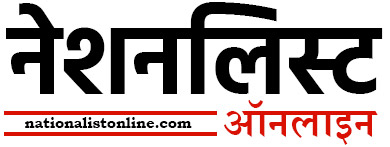RAJESH SINGH
Never before had any Prime Minister of India expressed solidarity with the people of Pakistan-occupied Kashmir and Balochistan in the way with which Narendra Modi did this August 15. In the course of his Independence Day speech from the ramparts of Red Front, Modi thanked the people of Balochistan and PoK for the “respect” they had shown to India. This path-breaking gesture should be seen as a new, developing paradigm in the country’s foreign policy vis-à-vis Pakistan. It’s clear that New Delhi has decided to change track and shed its inhibition of extending moral support to the people of the two regions who are battling suppression by the Pakistani establishment and have been waging their own wars.
The other front that the Modi Government must keep working on is continuing to expose Pakistan globally on its double-speak over terrorism. The Prime Minister took a swipe at Islamabad when he said that the “other side” was glorifying terrorists by calling them martyrs and freedom-fighters. The US and the West are aware of this reality, having been at the receiving end themselves.

The Prime Minister’s remarks came days after it became evident that the Bharatiya Janata Party and the NDA Government it leads intended to put Pakistan on the back foot over uprisings in Balochistan and PoK, and blunt Islamabad’s propaganda against India over the happenings in Kashmir. In PoK, the people are up in arms against the recently held local election, which they claim had been heavily rigged to favour Prime Minister Nawaz Sharif’s ruling party. They are demanding a plebiscite to determine their future — on whether they should join the Indian Union.
The struggle in Balochistan and the atrocities the Pakistani state has heaped on the brave Balochs have been well documented. But in the decades since independence, India has been wary of even publicly acknowledging this fact. Instead of standing by the Baloch people, Indian Governments in the past have maintained a distance, under the impression that saying anything on the issue would be construed as an interference in the internal affairs of a foreign nation.
The other belief was that, if India had to speak up for the Baloch cause, Pakistan in turn would heighten its aggression on Kashmir, which is already a problematic matter for this country. This was not just an overly defensive stance but also one that demonstrated lack of courage and conviction on New Delhi’s part. After all, what more could Pakistan do in response? It is already doing enough to destabilise Kashmir — sending armed militants from its soil and backing its proxies based in Jammu & Kashmir with money and other resources to foment violence in the valley.
Contrast the Modi Government’s bold departure from old practice to the blunder that had been committed by the preceding Congress-led UPA regime at Sharm-el-Sheikh in 2009. A joint statement issued between the two then Prime Ministers of India and Pakistan, not just delinked terror from what was called the ‘composite dialogue’ process, but also included a reference to Balochistan. The reference was such that it appeared as if India was fomenting anti-Pakistan unrest among the Baloch people. Even before the ink had dried on the document, Pakistan had gone to town claiming its vindication over the role of Indian intelligence agencies in Balochistan.
Now that a clear shift in taking place in the Government of India’s Pakistan policy, it is important for the pace to be maintained. New Delhi has already made it known that any talk with Islamabad on Kashmir will be on PoK. India must use its considerable clout in the global community to highlight the brutal crackdown against innocent citizens both in PoK and Balochistan. India must not just reciprocate the respect that the people of PoK and Balochistan have shown towards it, but also do whatever it can to support their cause. If the gloves have to be off, then so be it.
The other front that the Modi Government must keep working on is continuing to expose Pakistan globally on its double-speak over terrorism. The Prime Minister took a swipe at Islamabad when he said that the “other side” was glorifying terrorists by calling them martyrs and freedom-fighters. The US and the West are aware of this reality, having been at the receiving end themselves.
Meanwhile, it would be sensible for the opposition parties — especially the Congress, which is more strident than it should in such matters, given its pathetic track record — to refrain from taking pot-shots at the Modi regime on the issue. The flip-flop that the Opposition accuses the Government on the Pakistan policy is based on a flawed reading of the situation. Indeed, it’s Pakistan’s flip-flops that have led to varied responses from the Indian side. Pakistan first said it wanted to write a new chapter in bilateral relations with Modi at the helm, then continued to push infiltrators to create trouble on the Indian side of the border. It said it would not allow anti-India elements to prosper in Pakistan, but the likes of Hafiz Saeed and Syed Salahuddin openly spread venom against India from Pakistani soil. It said it would cooperate with India on solving the Pathankot terror attack case, but has instead sought to blame India for being uncooperative. India allowed Pakistan’s intelligence team to visit Pathankot, but Pakistan has blocked a reciprocal visit by Indian sleuths to carry the probe forward. In such a situation, it’s vain to expect a template response from the Indian side.
(The writer is editorial director of nationalistonline.com)

